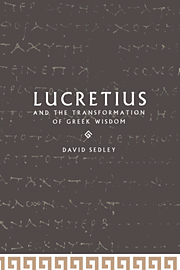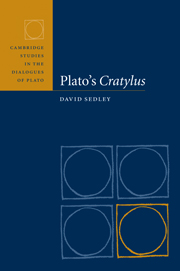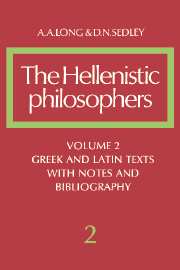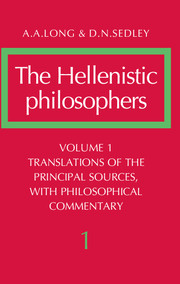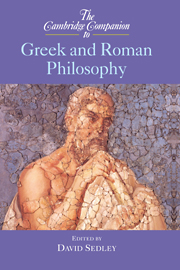Lucretius and the Transformation of Greek Wisdom
This book is designed to appeal both to those interested in Roman poetry and to specialists in ancient philosophy. In it David Sedley explores Lucretius' complex relationship with Greek culture, in particular with Empedocles, whose poetry was the model for his own, with Epicurus, the source of his philosophical inspiration, and with the Greek language itself. He includes a detailed reconstruction of Epicurus' great treatise On Nature, and seeks to show how Lucretius worked with this as his sole philosophical source, but gradually emancipated himself from its structure, transforming its raw contents into something radically new. By pursuing these themes, the book uncovers many unrecognised aspects of Lucretius' methods and achievements as a poetic craftsman.
- The appearance of this book is a great event - a first class modern philosopher writing on a major Roman author
- Nothing of this kind available elsewhere
- Contains the first ever full-scale reconstruction of Epicurus' great treatise On Nature
Reviews & endorsements
'[this] may be recommended unreservedly as a major contribution to the understanding of Lucretius' poetics, [and] must become required reading for all students of Lucretius … [It is] one of the most stimulating works on Lucretius for many years.' Bryn Mawr Classical Review
'This is a very rich book, a milestone in Lucretian scholarship and without any doubt a major point of reference for future Lucretian studies.' Phronesis
'Lucretius and the Transformation of Greek Wisdom recommends itself for its overall wealth of detail, as well as for its engaging reconstruction of the relationship between the poems of Lucretius and that of Empedocles … ' The Times Literary Supplement
'… fascinating … S gives us a lot of excellent insights into many aspects of the poem … will continue to provoke healthy critical debate and is already required reading in university courses on Lucretius. It is not afraid to raise big questions about Lucretius … scrupulous accuracy and apparently effortless readability … his opinions, and the light his arguments shed on the detail of the poem and its background, cannot be ignored by any serious student - or teacher- of this poem.' The Journal of Classics Teaching
Product details
September 2003Paperback
9780521542142
256 pages
229 × 152 × 18 mm
0.386kg
Available
Table of Contents
- 1. The Empedoclean opening
- 2. Two languages, two worlds
- 3. Lucretius the fundamentalist
- 4. Epicurus, On Nature
- 5. Lucretius' plan and its execution
- 6. The imprint of Theophrastus
- 7. The transformation of Book I
- Epilogue.

